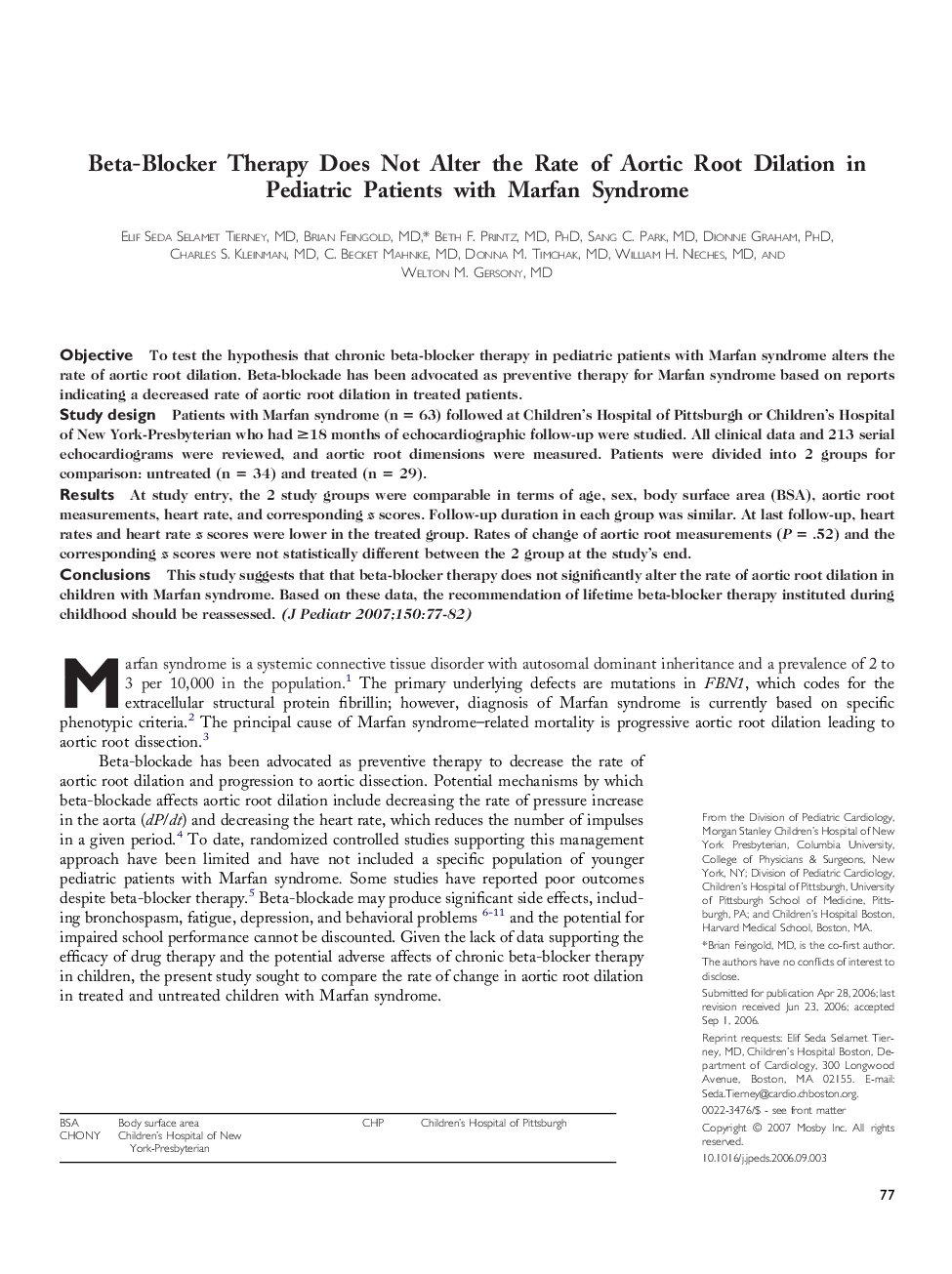| Article ID | Journal | Published Year | Pages | File Type |
|---|---|---|---|---|
| 4168913 | The Journal of Pediatrics | 2007 | 6 Pages |
ObjectiveTo test the hypothesis that chronic beta-blocker therapy in pediatric patients with Marfan syndrome alters the rate of aortic root dilation. Beta-blockade has been advocated as preventive therapy for Marfan syndrome based on reports indicating a decreased rate of aortic root dilation in treated patients.Study designPatients with Marfan syndrome (n = 63) followed at Children’s Hospital of Pittsburgh or Children’s Hospital of New York-Presbyterian who had ≥18 months of echocardiographic follow-up were studied. All clinical data and 213 serial echocardiograms were reviewed, and aortic root dimensions were measured. Patients were divided into 2 groups for comparison: untreated (n = 34) and treated (n = 29).ResultsAt study entry, the 2 study groups were comparable in terms of age, sex, body surface area (BSA), aortic root measurements, heart rate, and corresponding z scores. Follow-up duration in each group was similar. At last follow-up, heart rates and heart rate z scores were lower in the treated group. Rates of change of aortic root measurements (P = .52) and the corresponding z scores were not statistically different between the 2 group at the study’s end.ConclusionsThis study suggests that that beta-blocker therapy does not significantly alter the rate of aortic root dilation in children with Marfan syndrome. Based on these data, the recommendation of lifetime beta-blocker therapy instituted during childhood should be reassessed.
